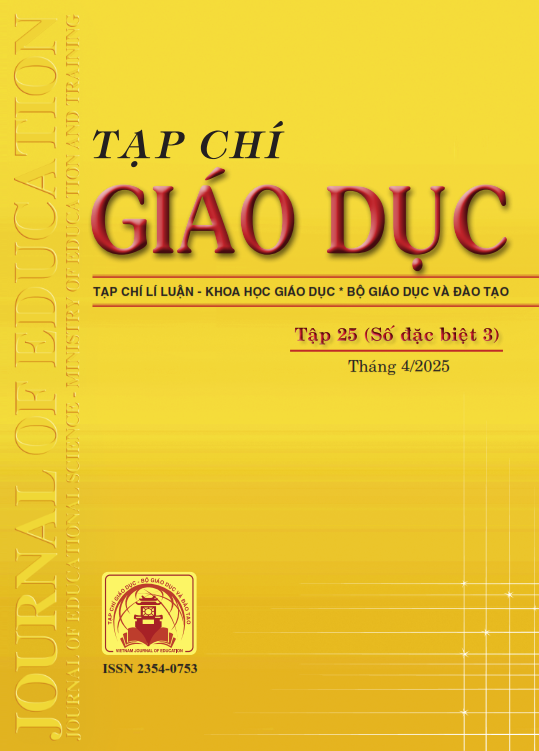Phát triển năng lực tự học của sinh viên thông qua mô hình dạy học kết hợp trực tiếp - trực tuyến: Nghiên cứu tại Trường Đại học Cần Thơ
Tóm tắt
Amid the accelerating digital transformation and expanding role of technology in education, this study at the School of Foreign Languages, Can Tho University, evaluates the impact of blended learning (face-to- face and online) on learner autonomy among English and French students. Survey results from 235 participants show high engagement in activities like reading materials, completing assignments, watching online lectures, and taking online assessments, with 90.63% rating the model as effective and highly effective. Despite its benefits, the study identifies limitations in interaction on online discussion forums. To address this, recommendations include enhancing communication tools, improving online discussion methods and content, and diversifying assessment strategies to further optimize learning outcomes.
Tài liệu tham khảo
Charlier, B., Peltier, C., & Ruberto, M. (2021). Décrire et comprendre l'apprentissage dans les dispositifs hybrides de formation. Distances et médiations des savoirs, 35. https://doi.org/10.4000/dms.6638
Deschênes, A. J. (1991). Autonomie et enseignement à distance. Canadian Journal for the Study of Adult Education, 5(1), 32-54.
Garrison, D., & Vaughan, N. (2008). Blended learning in higher education: Framework, principles, and guidelines. San Francisco, CA: John Wiley & Sons.
Graham, C. R. (2006). Blended learning systems: definition, current trends, and future directions. In C. J. Bonk & C. R. Graham (Eds.), Handbook of blended learning: global perspectives, Local Designs (pp. 3-21). San Francisco: Pfeiffer Publishing.
Holec, H. (1979). Autonomy and Foreign Language Learning. Strasbourg, France: Council for Cultural Cooperation.
Lê Đức Phúc (2006). Một số cơ sở lí luận và thực tiễn của việc nghiên cứu sự tự học của sinh viên. Tạp chí Tâm lí học, 9(90), 7-14.
Osguthorpe, R. T., & Graham, C. R. (2003). Blended Learning Environments: Definitions and Directions. Quarterly Review of Distance Education, 4(3), 227.
Portine, H. (1998). L'autonomie de l'apprenant en questions. Alsic. Apprentissage des Langues et Systèmes d’Information et de Communication, 1(1), 73-77.
Thái Duy Tuyên (2003). Dạy tự học cho sinh viên trong các nhà trường Cao đẳng Đại học chuyên nghiệp. Chuyên đề Phương pháp dạy học cho học viên Cao học, Đại học Huế.
Thome, J. (2003). Technology in education: The role of active learning environments in enhancing student experience.
Đã Xuất bản
Cách trích dẫn
Số
Chuyên mục
Giấy phép

Tác phẩm này được cấp phép theo Ghi nhận tác giả của Creative Commons Giấy phép quốc tế 4.0 .












